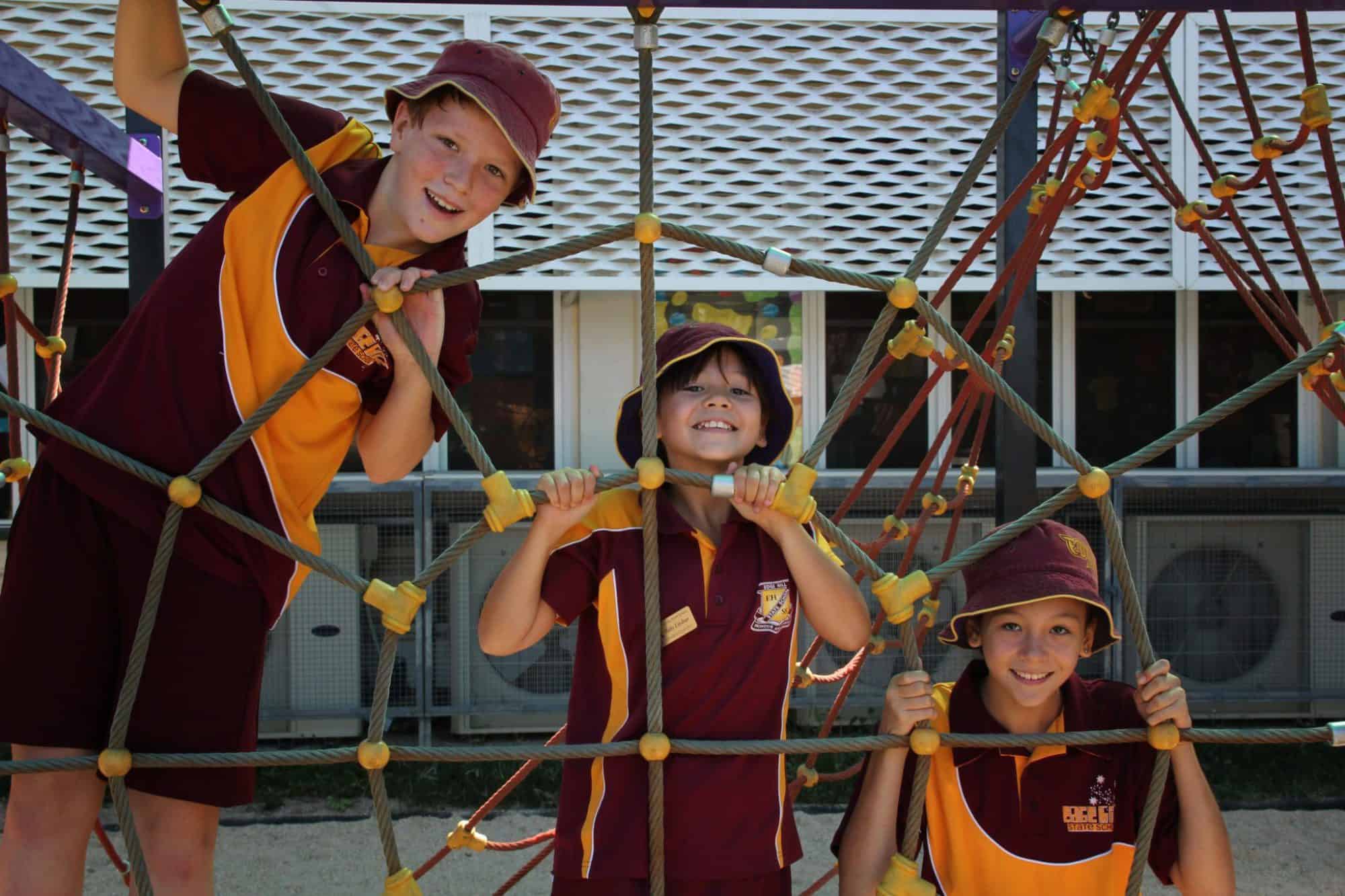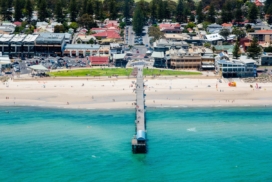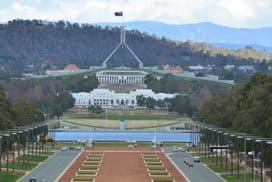Selected schools in Australia offer first class education and have long established traditions, making Australia is a great and safe place to study at school level. Australian Schools offers students a comprehensive study experience and a gateway to a successful future in one of the world's most spectacular environments. Furthermore, schools in Australia offer high quality education for students and are a perfect pathway for those who may wish to progress onto further studies.
Our team helps students and parents to select schools everywhere is Australia, uniquely located in popular destinations such as Sydney, Brisbane, Perth or the Great Barrier Reef, the Wet Tropics Rainforests, great beaches ...many students are choosing to study in this relaxed & friendly tropical paradise. By contacting us you are ensuring that you will have all the help and advice you need to access the full range of educational and recreational opportunities available to you.
Our School Programs in Australia
Australian public and private schools are openly competing for international students for what is now turning out to be a industry with bright future prospects. International students from all walks of life, Chinese, Vietnamese, Europeans, Americans and various other nationalities are truly benefiting from the vibrant international atmosphere for cross-cultural dialogue.
With a competitive exchange rate, a strong and robust economy and a world class education system, Australian schools are positioning themselves in the intense competition to attract international students.
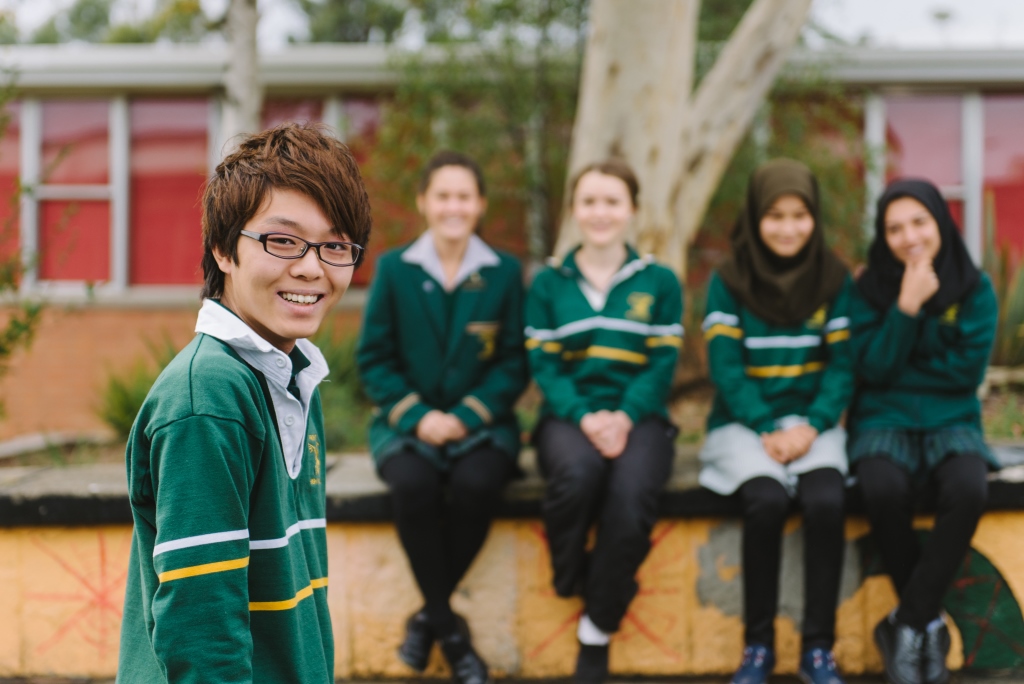
High School Program (Government schools)
Our High School program is for Years 7 - 12. You get to chose your location and school. You can chose to study 1,2,3 or 4 terms or more. Some schools also offer the IB program.
Show morePossibly the most cost effective and affordable schooling option in Australia this is the most popular option among international students in Australia.
Governement Schools in Australia offer both Primary and High Schools and they will always be separate from each other. There will nearly always be a Primary School in each suburb and a High School in each council or shire district area.
One of three types of schooling options in Australia, including the two more expensive options being Private and Independent Schooling. Don’t think you are missing out going to a public school.
Public School students have the same opportunities of those attending a Private or Independent School. The same subjects are available as well as offering specific classes for those wanting to enter the work force, TAFE or University after completion of Year 12.
Public Schools have smaller School fee’s and the cost and requirements of uniforms are usually a lot less, however uniforms are mandatory in all Australian Schools.
Government Schooling is a great place to send your child.
Contact us today if you would like us to help you find the right Government School in Australia. We represent all the government schools that accept International Students.
Private School Program
Chose from our list of prestige private schools in Australia. Some schools even offer boarding facilities. The private school program is generally more expensive and limited to certain locations.
Primary School Program
We can offer you primary school programs in Australia. These schools cater for Years 1-6. Check with us to see the free services we can offer to help enrol your child.
Show moreInternational Primary School Australia Program These programs are for students intending to study at primary level and who are accompanied by a parent or guardian. The student has the option to study from primary level up to secondary through to graduation. The program offers international students:
- High quality primary level tuition
- Superb student support services
- A golden opportunity to experience Australian culture first hand
- An opportunity to improve their English language communication skills
- A primary school certificate on completion of the program
Entry requirements Special conditions apply in that the ongoing welfare and accommodation arrangements are the sole responsibility of the parent or guardian.
Primary School Australia Study Abroad Program Fees A$5,000 to 11,000 a year Fees are payable in Australian dollars and include OSHC.
The program includes:
- The orientation and welcome program
- Initial stationary
- School support
- Ongoing language support
- Optional at additional cost
- Airport reception
- Medical insurance
The program does not include things such as:
- Students visas
- Accommodation expenses
- School excursions
- School uniforms
- Personal expenses
- Travel expenses
- Any additional expenses incurred in pursuing special programs
Where can I visit a school in Australia?
Australia is a popular country for international students of all different ages. The weather varies depending on where you travel from the subtropical climate of Queensland to the snow-filled winters of Tasmania. No matter which city you may start your Australian adventure in, you can just as easily hop on one of the frequently scheduled and competitively priced domestic airlines to visit other or all of the Australian cities, states and territories.
There are many schools where international students can enrol. We are able to offer international school programs in all locations within Australia. Wherever you go, Australia is filled with things to do and places to see.
Our Registered International Student Agency is designed to help you succeed with your Australian school application
Trained & Registered Consultants
Our student counselors are trained and registered so you can expect excellent expert advice and support.
100% Free Service
Our student services are 100% free as we are funded by the education providers in Australia.
Schools across Australia
We represent over 500 schools across Australia. Whether they be government or private, primary or high school.
Individual & Ongoing Support
Our service doesn't end once you start school. We are there to support you throughout your entire studies in Australia.
Our Schools in Australia agents can help you to find the right school and to get prepared for all types of Australian education pathways. Stick with us to learn in Australia!
We can help you:
- Find the right school in Australia and inform you about your schooling options
- Learn about the Australian school system and choosing your subjects
- Get prepared for your school studies in Australia; flights, insurance, documentation etc.
- Help organise accommodation; host family, guardian or boarding school
We help you find a school in Australia
So you are thinking about studying in Australia. You have done a bit of research yourself and have found out that there are simply way too many schools in Australia for you to choose from!
Don’t worry, we know how overwhelming this can be and we would like to help. As a starter, please take some time to think about and answer the following questions.
- Would you like to be in a big city, a small town or somewhere in between?
- Would you prefer to study in a large school or a small one?
- Do you have relatives in Australia? Where are they situated? and would you like to be placed close to them?
Are there specific subjects that you would like to study at your host school? What are they? (e.g. German, Science…) - Are there specific extra curricula activities that you would like to be involved in? What are they? (e.g music, drama, sailing…)
- Urban areas such as Sydney and Melbourne has a large international student population whereas the number is low in more rural areas such as Mission Beach and Central Tilba. With this in mind, Would you like to study in a school with many or few international students?
Once you have answers to the above questions, please feel free to contact us with the above information and we will do our best to match your preferences with one of the schools in Australia!
Registered Australian School Advisers
Are you a student hoping to study and make new friends from around the world in Australia? Or perhaps, you are a parent hoping to give your son or daughter the opportunity to learn and perfect English in a top ranking, safe and clean environment such as Australia? If so, congratulations for taking the first step towards realising your aspiration.
The education counselors at Go To Australia have the professional skills and knowledge needed to provide you with proper support, guidance and advice on all aspects of your Australian study experience. The AA Education Network counselling services are provided free of charge and both students and their parents/ caregivers have access to this service before, during and after the students’ Australian study experience.
The information, support and guidance provided by our counselors will cover most aspects of your Australian study experience. Information that you can expect to receive from AA Education Network counselors can include an outline of the Australian education system, types of schools available throughout Australia, the Australian national curriculum and even more specific curricula and extra- curricula subjects offered by individual schools of your choice. You can also expect to receive information, support and guidance regarding various issues such as visa application, homestays, qualifications recognition, translation services, and you will also receive information with regard to insurance, tuition fees and other money matters.
As each student will experience Australia in their own unique way, we therefore encourage communication from all our students and their parents throughout their Australian adventure. This is so that we can provide a professional and personalised service to our students in order to ensure that their Australian study experience will be a positive one.
Should you have any questions, issues or concerns regarding any subjects that has not yet already been described in our website, or should you wish to proceed with an application, please feel free to contact one of our friendly staff at Go To Australia.
Sending your child to school in Australia is a special occasion
Sending your child to school in Australia is a special occasion, but one which leaves you with many questions and really struggling to know where to start. It is an occasion that you really need to be sure of the facts so that your child can be set for a perfect start to their Australian Education.
Schooling in Australia leaves parents with many options. There is kindergarten which can be community based of if your child is expected to go to Independent or Private schooling will be provided by these schools. Then you need to think of Primary Schools, Middle Schools and High Schools, and of course which type of school you wish to send them to.
In Australia there are three option for schooling including Public or Government Schools, Private Schools or Independent Schools. Here we hope to help you to understand each of these schooling types to help you make the best decision for you, your child and your family.
Parents will have peace of mind knowing that schools in Australia develop the individual talents of young students in a safe, caring and culturally diverse environment. Australian schools also offer a wide range of subjects, highly trained and experienced teachers, and the use of state-of-the-art technology and specialised laboratories.There are two broad categories of schools in Australia – government and private schools.
Both accept international students and receive government funding. Most schools are co-educational with the exception of some private secondary schools. Private secondary schools are usually not co-educational and often have a religious affiliation.
All schools in Australia accepting international students must be government-registered and have to meet special requirements under Australian Government legislation ensuring high educational standards, satisfactory premises and financial protection. Another requirement is to provide, or have access to, specialist English language support.
There are over 12,000 international students in Australian schools. Some schools and colleges cater exclusively for international students. Others have long traditions of exchanging their own students with international students. School enrolments may be limited simply because the availability of spaces is at a premium. It is wise to make your enrolment enquiries early and inquire about waiting lists.
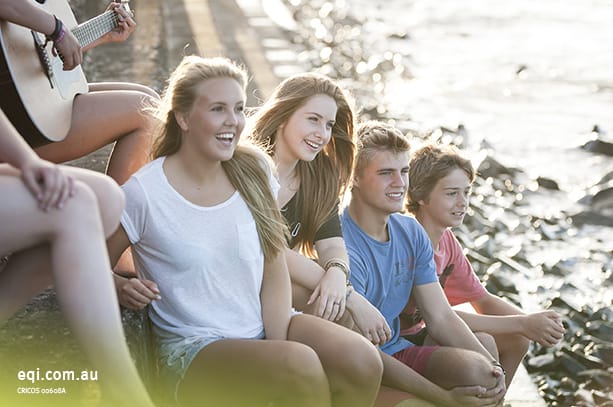
School Australia Application
1. Fill out our form and one of our agents will get back to you within 48 hours.
2. Your agent will send you the application forms for your chosen school and assist with document preparations.
3. Once completed your agent will send off all required documents to the school.
4. Your agent will guide you through the student visa application and provide answers to any questions you may have.
5. Your agent will help you prepare all other parts of your school studies in Australia including accommodation, flights and insurance.
6. Come to Australia and start you school studies! Your agent will always be at your disposal throughout your entire stay in Australia!
Further Information about an Australian school education
Australian school terms
The academic year is divided into four terms and runs from late January/early February until December; between the terms is a short holiday and a long summer holiday from December until the new year starts. School times are generally Monday to Friday from 9.00 am to 3.30 pm each school day.
International student fees
Fees vary from $5,000 – $11,000 per year for primary and junior secondary schools and from AUD $6,000-AUD$13,000 per year for secondary schools.
Learn more about the school terms and fees here.
Find out about the visa requirements for a school program in Australia. When booking a school program through us, our free service includes assistance with applying for the right visa! Although there are some exceptions for certain schools or states, most school students, including those participating in a secondary school exchange programme will be required to apply.
Obtaining a Student Visa for a school visit in Australia
Australia is a country which must be visited at least once in a lifetime for you to truly appreciate the wonders that lie on the such diverse soil. What an amazing opportunity it would be as a high school student to either come and stay in Australia to study as an exchange student or with family living in Australia.
This is why the Australian government offer Primary and Secondary School Student Visa’s to eligible students. Australian schooling is split into two sectors with privately run schools and the public government run schools. There is a range of different educational and schooling options which I’m sure will meet each students needs.
When applying for the student visa you must meet certain visa requirements these include, being enrolled in a registered course, have adequate English language skills, have the financial capability to fund for yourself during your stay in Australia, have over seas health insurance during your stay in Australia, and if your are under eighteen you will require your parents and guardians permission as well as arrangements for your accommodation and welfare during your stay in Australia.
Many Australian High Schools offer student exchange and home stay programs, placing the student in the housing and care of a Australian government approved family. For a more convenient and cost effective option.
Your acception for a student visa will be based on an assessment program which the Department of Immigration runs, this will be based on a risk level which is determined on where you are from and what you are studying.
You are also eligible to work for 20 hours a week once you have commenced your study.
Please remember your student visa is for temporary stay, and you will require a valid passport for travel into Australia.
Applying for a Student Visa
if you want to enrol into one of the many Schools in Australia, please contact our registered Australia School advisers
Student Guardian Visa for Parents
Parents who wish to be their child guardian during their school program in Australia.
If an international student under the age of 18 is required to study in Australia they will need to be accompanied by either their parent or a legal guardian. In this case the guardian will require a Student Guardian Visa. However, most students come to Australia by themselves ad are looked after by a host family, who is regulated by the authoritative government department.
If the student requiring a Guardian is under the age of six the Guardian will not be eligible for a visa, unless and this has happened in very few circumstances. If a child is under the age of six and has a valid passport in a country that is subject to Assessment Level 1 or 2 of the Schools Sector student visa, and hold exceptional circumstances. Here you may be eligible for a Student Guardian Visa.
When applying for a visa there is a non-refundable visa application charge which must be paid.
Holding a Student Guardian Visa will let you live in Australia for the length of time you are required as a student guardian or until the child turns 18. You will be able to bring your own dependent children under the age of six with you, as well as having the right to study in Australia for three months.
Recognition of you school studies in Australia
International students in Australia and their parents enjoy a level of service and financial protection that is unrivalled. Australia is firmly committed to providing quality education and training and offers strong assurances to international students.
Both public and private institutions must meet high standards of quality and ethical practice which take into account such issues as curriculum, qualifications of teaching staff and facilities, including specialist equipment.
Australian qualifications are recognized by employers and leading educational institutions in many countries around the world. The National Office of Overseas Skills Recognition (AEI-NOOSR), which is part of Australian Education International, assists Australian institutions to recognize qualifications from overseas. NOOSR also works to promote the recognition of Australian qualifications internationally.
Behavior Guidelines for International Students
School Behavior conduct
Schools in Australia promote learning which emphasises on creativity and innovation. The goal in state schools is to provide quality education that is future oriented enabling students achieve their full potential.
A safe, supportive and disciplined environment is important to effective learning.
The following rights apply.
- All students have a right to learn, all teachers have a right to teach and all have a right to be safe.
The Code of school behaviour outlines the responsibilities that the members of the school community should uphold. The code is used as a base to provide positive support that encourages achievement and good behaviour and a clear outline of the consequences of inappropriate behaviour.
Students should:
- Actively participate in the education program.
- Be responsible for their behaviour and learning.
- Respect themselves and other members of the school community and environment.
- Respect the rights of others as well as their right to learn.
- Cooperate with the school authority and staff.
Consequences of Inappropriate student behaviour
The Responsible Behaviour Plan for Students outlines the consequences for student behaviour that is not in line with The Code. The consequences are:
- Suspension, exclusion or cancellation of enrolment.
These however are given after consideration of all other responses. For students who continuously do not keep The Code, alternative programs and also input from other agencies is deemed necessary.
Values on which The Code is based:
- Professionalism: Being committed to the highest performance and accountability standards.
- Respect: Treating all respectfully.
- Innovative and Creative: Having environments that support creativity and innovation.
- Diversity and Inclusiveness: Promoting participation in education and different cultural activities.
- Excellence: Encouraging the achievement of excellence.
When determining curriculum, Australian schools work on the principal that learning and creativity are the foundations of a good education
High expectations and an atmosphere of inclusiveness are the key features of schooling, in order to produce a higher quality life for everyone living in Australia.
In order to achieve this goal, the Australian education system places the onus on students to help create a safe and conductive school environment.
This focuses on the right of students to learn, but also gives the students the responsibility to act in a productive and considerate manner. The rights and responsibilities of the student are mutually inclusive, and vital in creating a harmonious environment.
Australian schools require students to adopt high expectations for their personal achievements and their own behaviour. Students are held accountable for their actions and are taught, by clearly articulated school practices, that their actions have outcomes, be they positive or negative. Positive behaviour is encouraged with a whole school approach which gives everyone, from students to the school principal, opportunities to foster good behaviour.
Within the school environment, students must show respect for themselves and for other people, while teachers and other authoritative figures are required to model good behaviour. All members of the school community are obliged to act in a lawful and conscientious manner at all times.
In the event of bad behaviour, the school will consider the misbehaving students situation as well as the safety of the school environment in determining consequences. Schools employ a range of techniques and work with other educational agencies to assist the student in developing positive habits. Schools only use suspension or cancellation of enrolment as a last resort, or if the student is endangering the lives of others.
These principles ensure that students are receiving the best education possible in a secure environment, and also teaches the students about responsibility and the consequences of their actions.
Australian School System
Australian schools provide a safe, caring and culturally diverse environment for young students. Australian schools cater for a variety of subjects, they have highly trained and experienced personnel, and the most current technology available in Australia.
Australian Government legislation requires schools to ensure high educational standards, satisfactory premises and financial protection if international students are enrolled. They also need to provide dedicated English language support. As there are over 12,000 international students in Australian schools and waiting lists are common it is recommended to enrol as early as possible.
The national curriculum framework ensures that subjects in eight Key Learning Areas are taught: English, Mathematics, Social Studies and the Environment, Science, Arts, Languages Technology and Personal Development (including Health and Physical Education), which are intensified at secondary level.
As the Australian school system provides vocational training in many secondary schools, students are in even more demand by employers due to their practical and career-orientated skills.
Children may start with preschool followed by 12 years of primary and secondary school. In year 12, you may sit for a government-endorsed certificate that provides possible entry to an Australian or international university, vocational education or training institution.
Responsibility for education is divided between state and territory governments and the federal government.
- State and territory governments are responsible for school education, and provide and manage government schools as well as supporting non-government schools.
- The federal government, through the Department of Education, Science and Training (DEST) provides supplementary funding to support certain strategies and priorities such as literacy and numeracy programs, and is responsible for higher education.
- Shared between the state and territory and federal governments is vocational education and training.
The Australian schooling system is divided broadly into three areas:
- Preschool
- Primary School
- Secondary School/High School/Secondary Colleges
Different Teaching Approach
You may find the system of teaching and school discipline very different in Australia. Less importance is placed on outward discipline and memorising than is done in many other countries. Emphasis is put on self discipline, on learning by finding out and by questioning, and encouraging a child’s interest and enthusiasm for learning.
Parent Involvement
Schools encourage parent involvement and wish to help newcomers. Most schools have parent and teacher associations which play an active part in school life, raising funds for many school needs but also helping to decide what is taught and done at the school. Parent skills are valued and your involvement is welcome.
Compulsory Schooling
Schooling is compulsory for students in most states and territories until the age of fifteen. Although students are able to leave at that time, most students do not leave until they complete their Year 10 qualification, with many students continuing on to complete their Year 12 studies.
